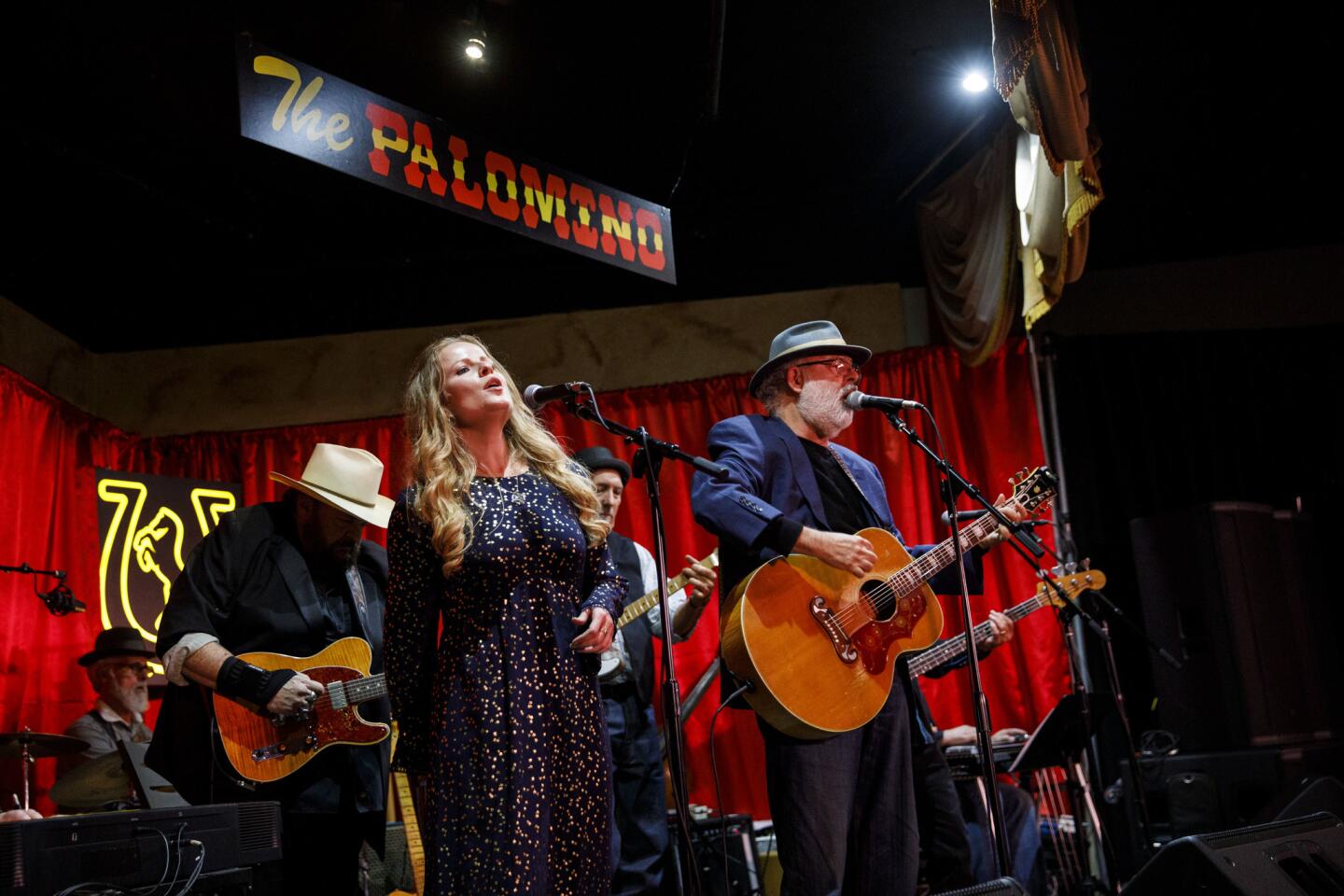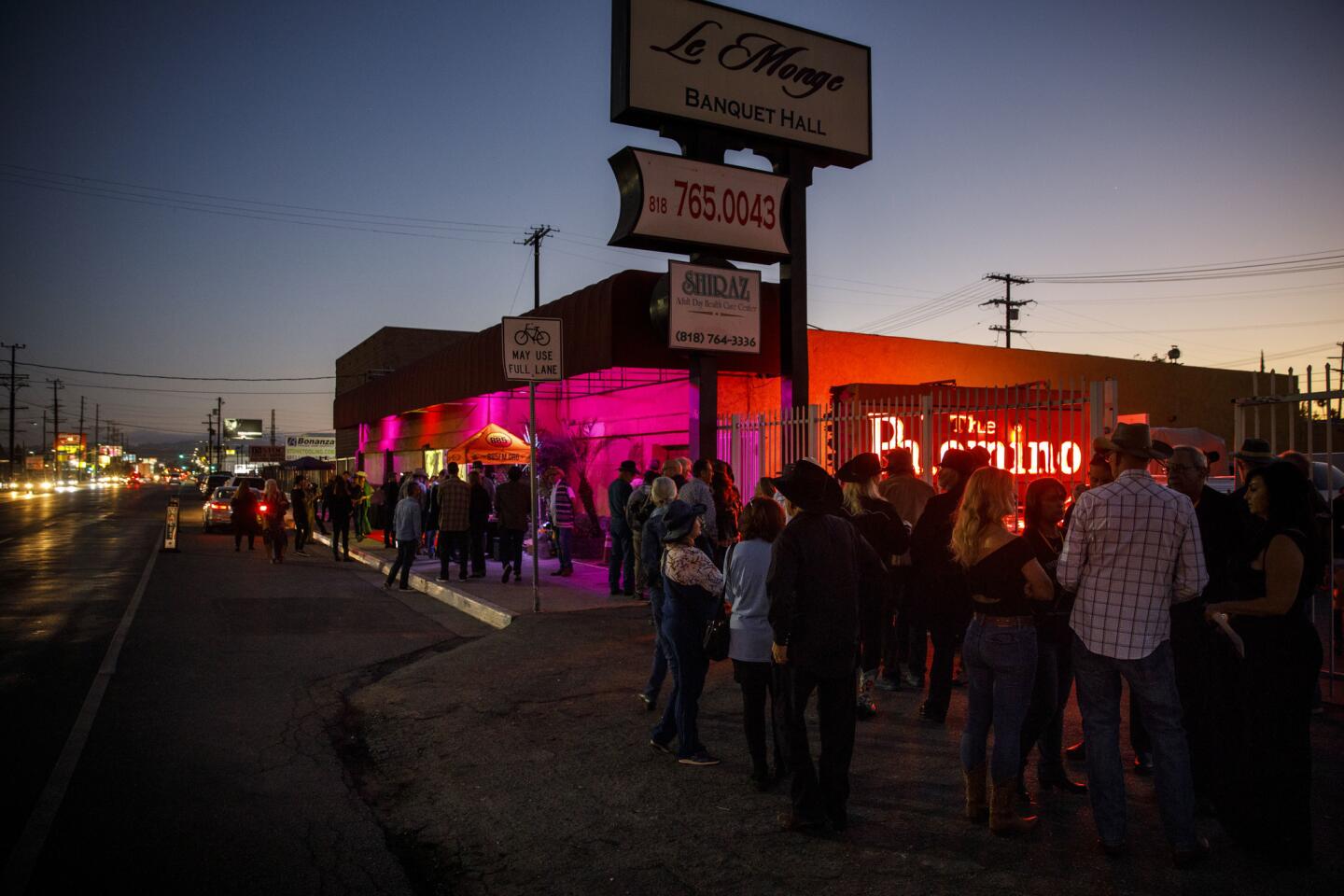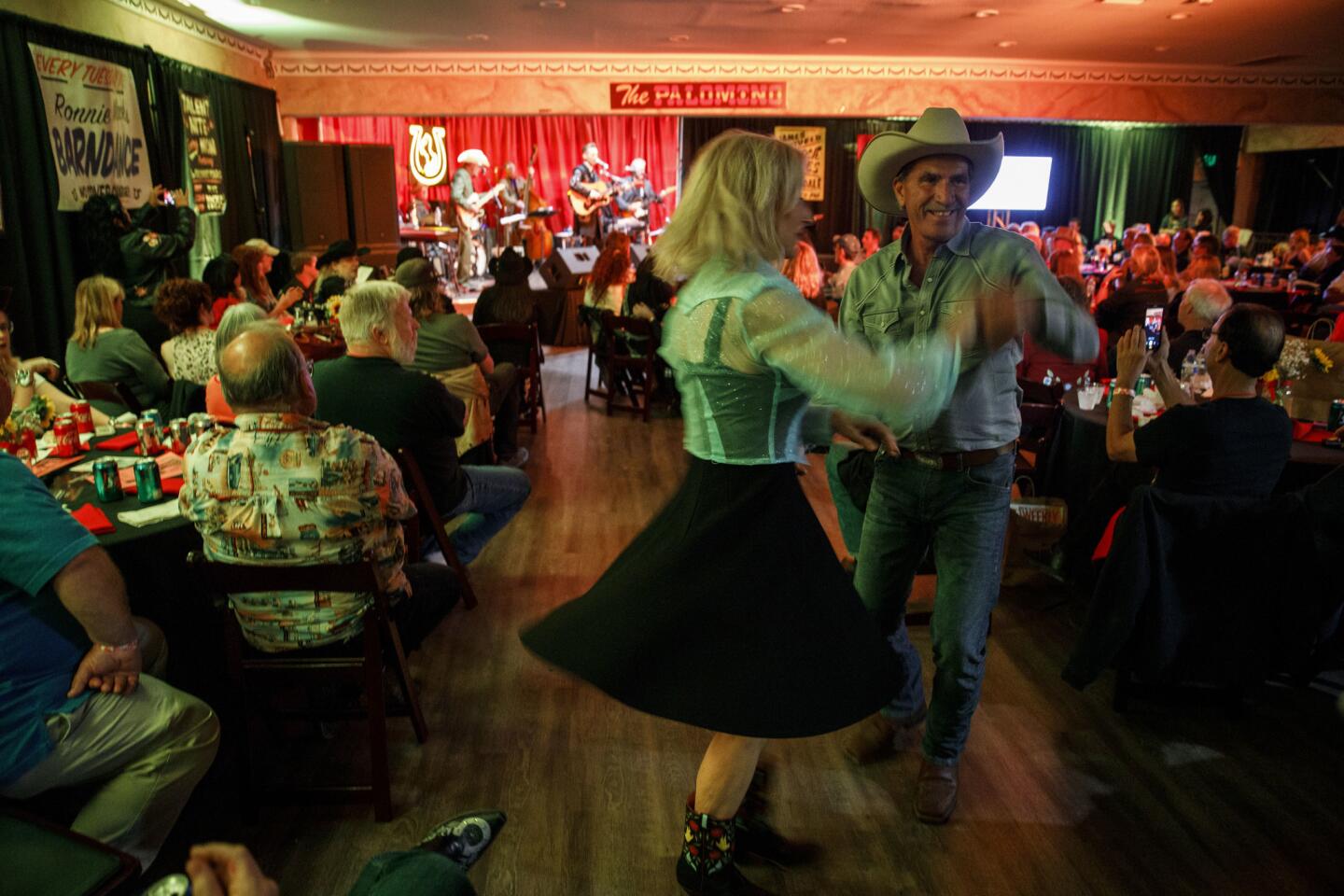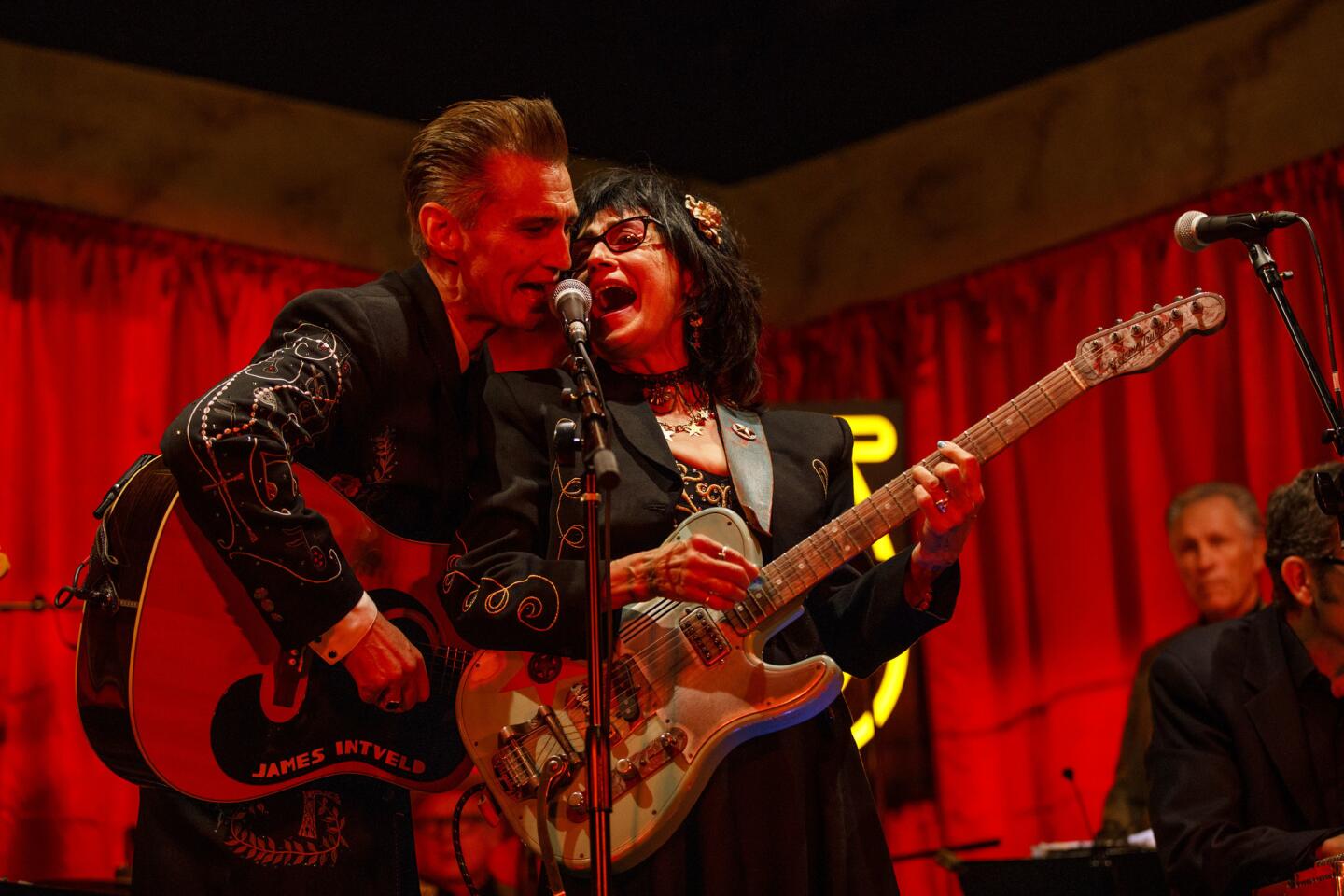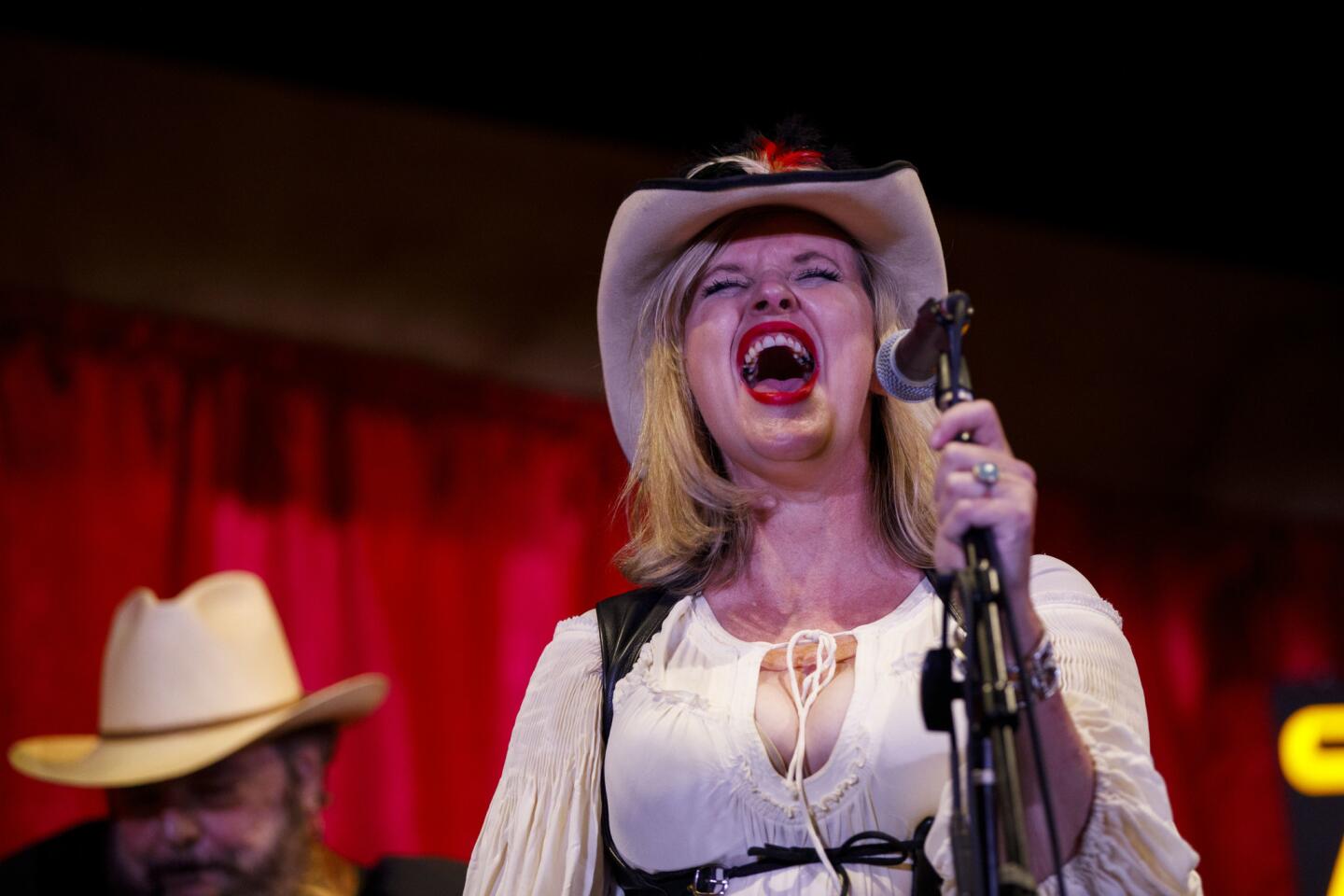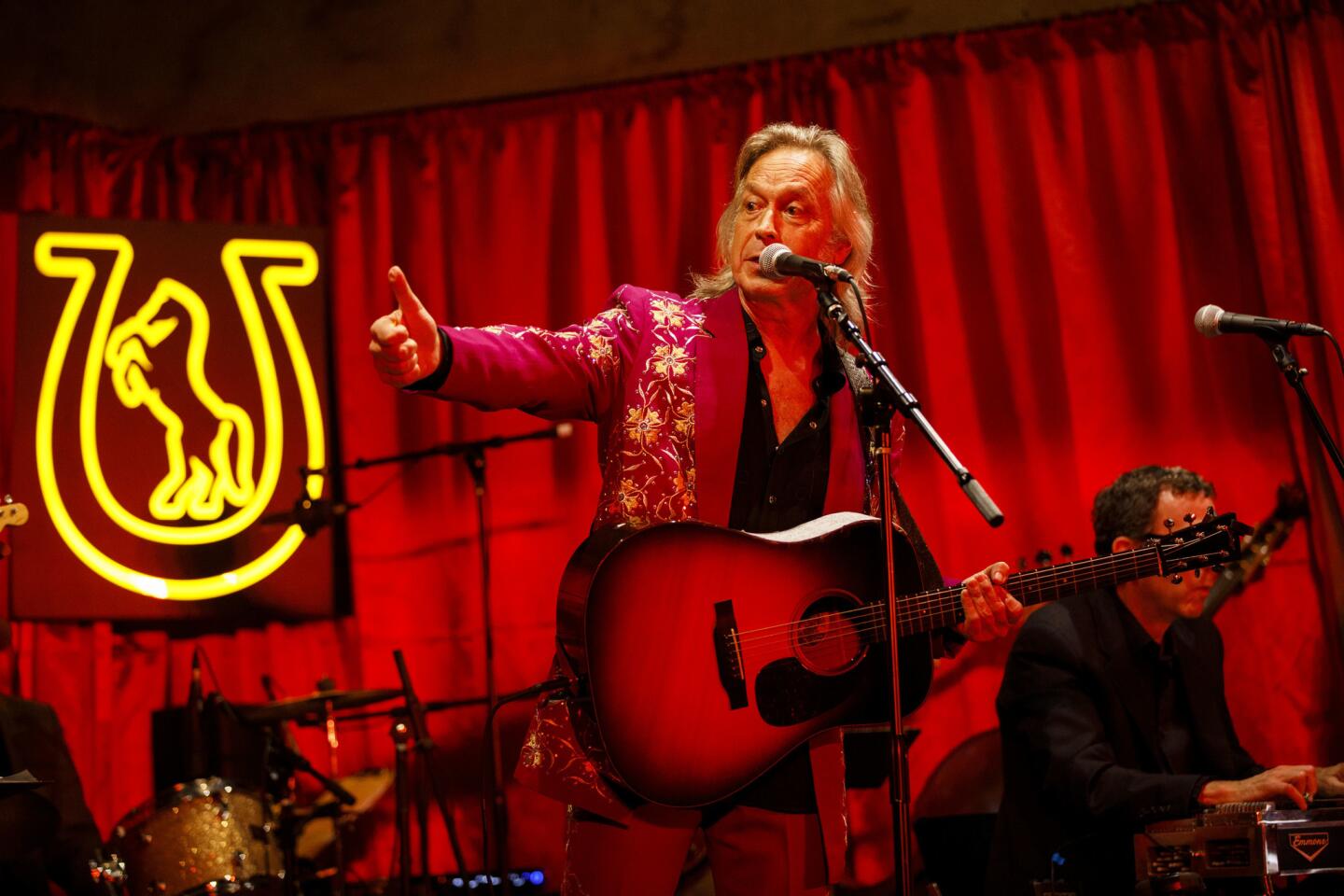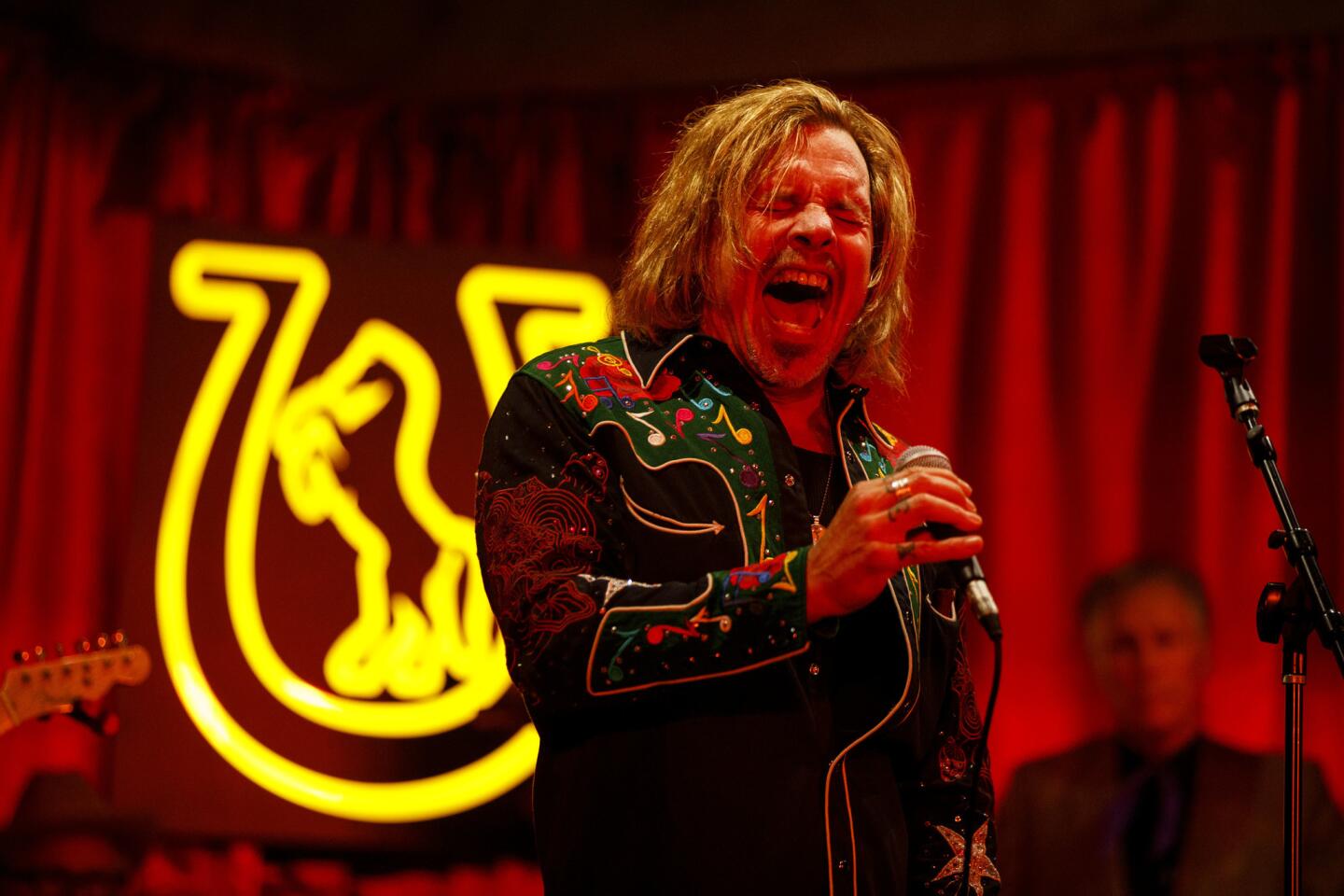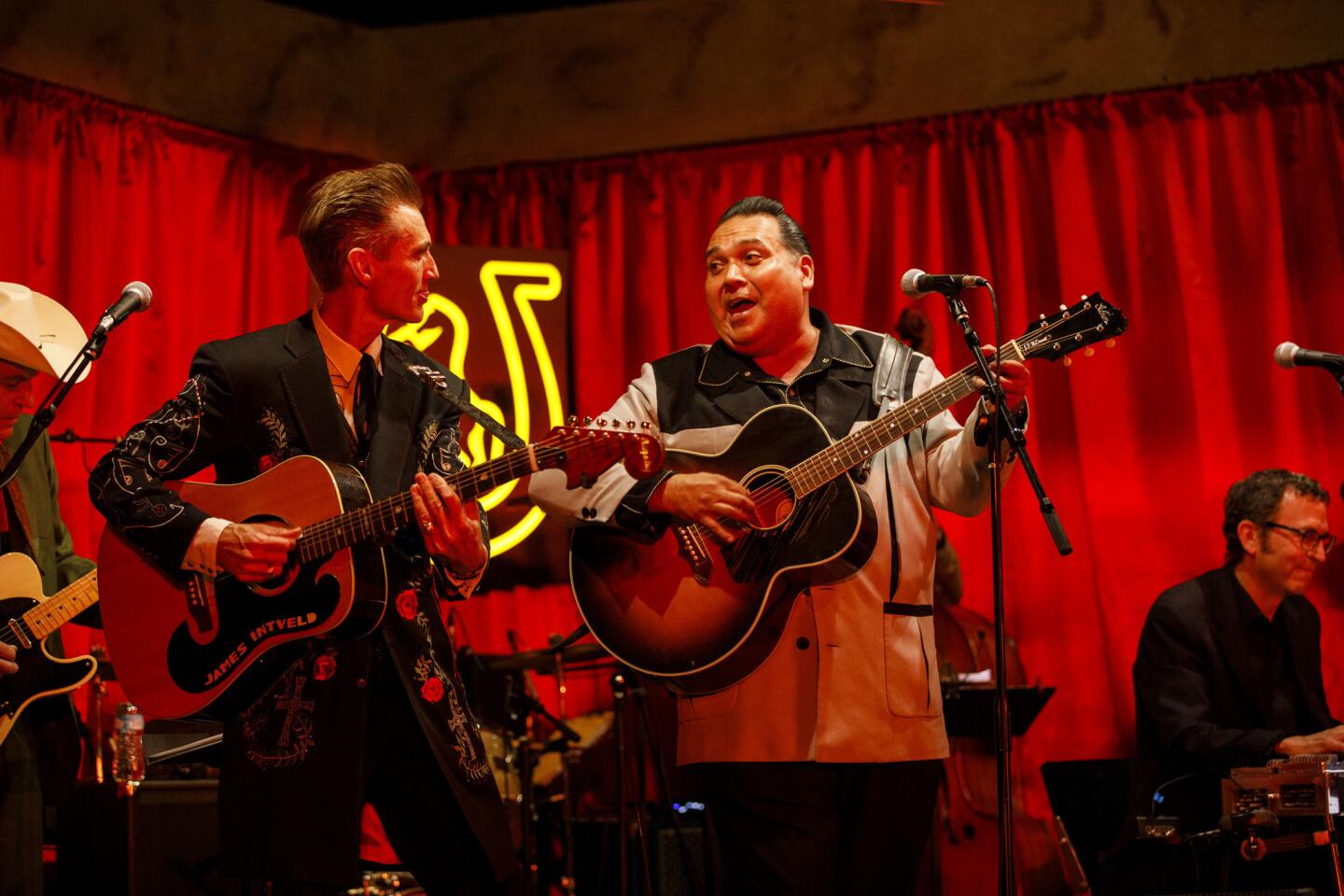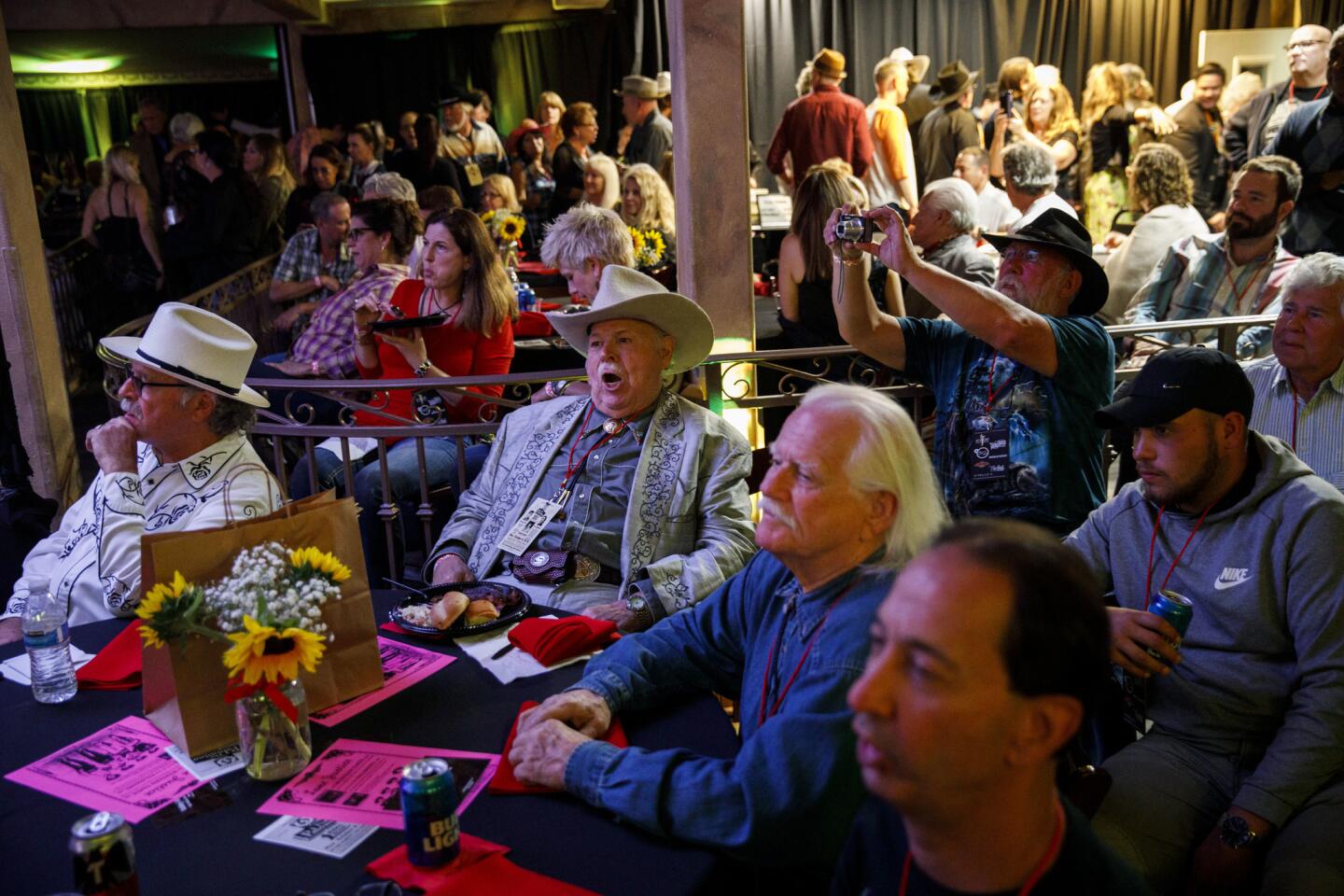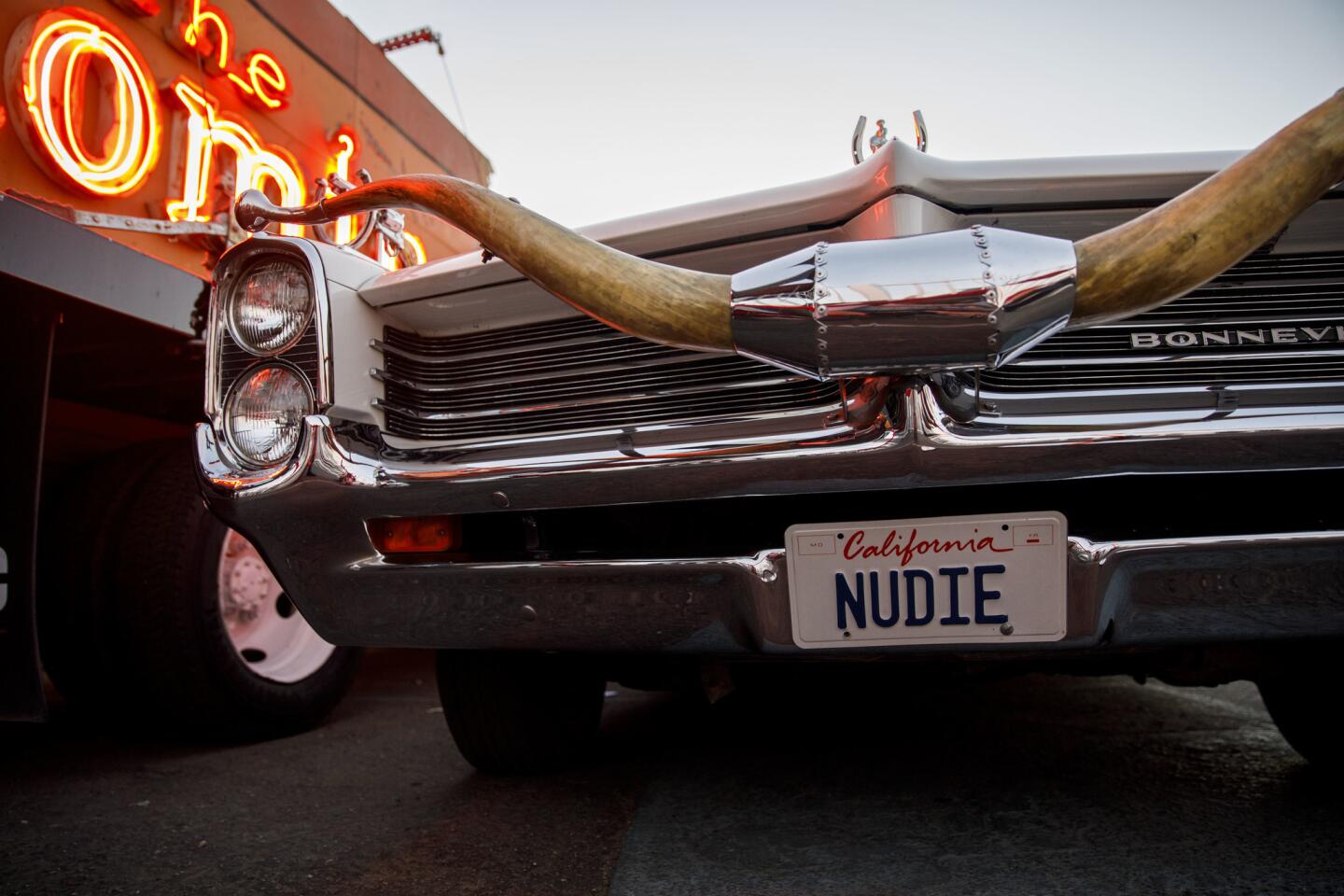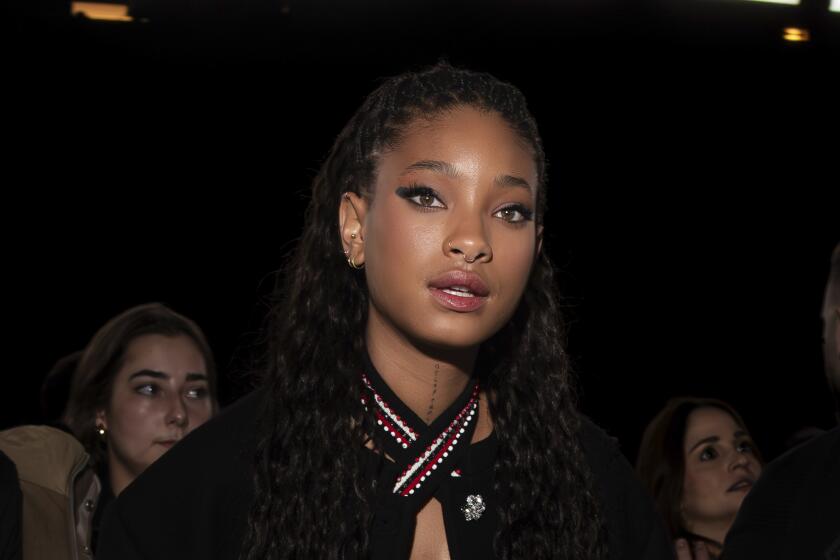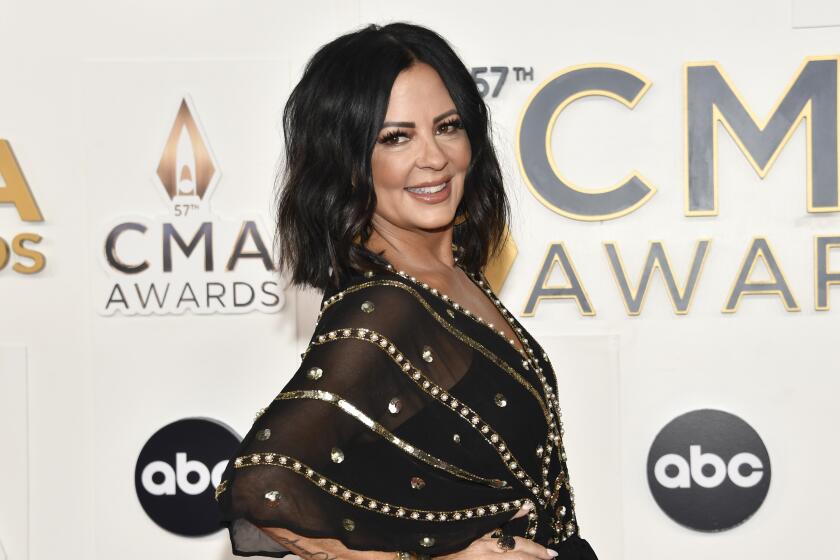Review: The Palomino rides again as benefit brings celebrated L.A. honky-tonk back to life for one more night
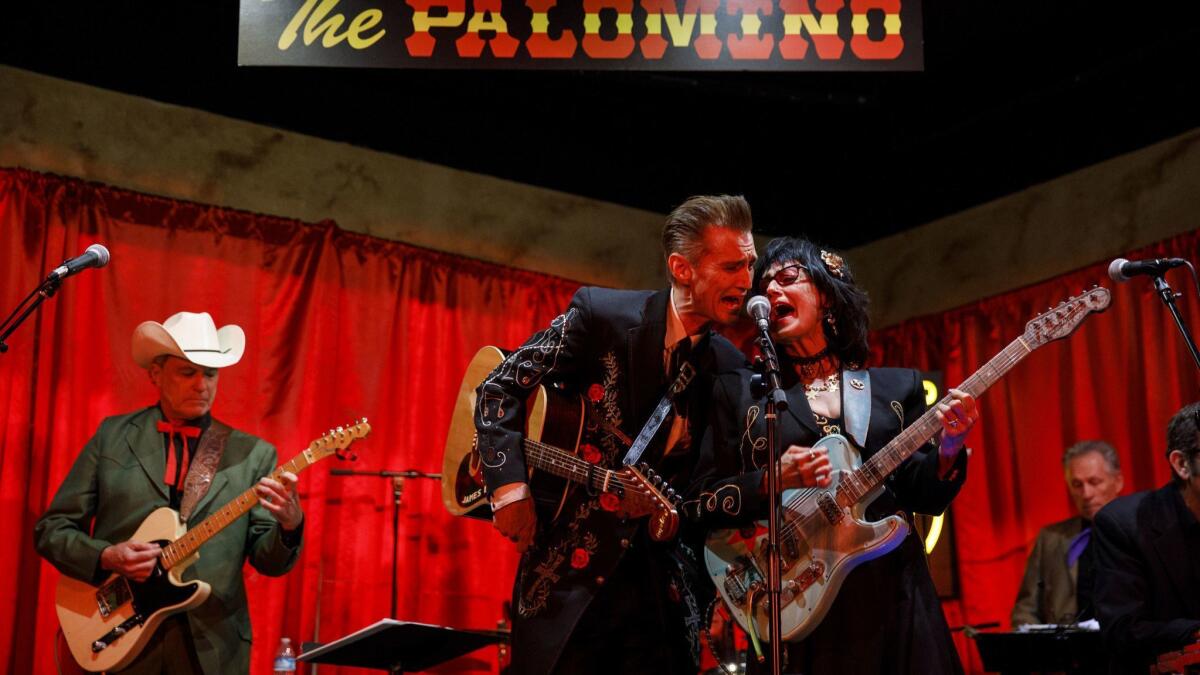
Few venues in Los Angeles can boast as much colorful history or affection among the music community as the fabled Palomino Club in North Hollywood.
That was apparent Monday when the celebrated honky-tonk, which closed in 1995 after more than four decades as the epicenter of West Coast country music, reopened for the night to raise money for the Valley Relics Museum.
In the nearly quarter century since the Palomino ceased operation, the building has survived as a banquet hall. But that evening, operators of the museum brought along the old sign, which sat on a flatbed trailer outside the building in all its glowing neon glory, right next to the Pontiac Bonneville formerly owned by revered clothing designer Nudie Cohn, complete with pistol-shaped door handles and horseshoe-like brake and accelerator pedals.
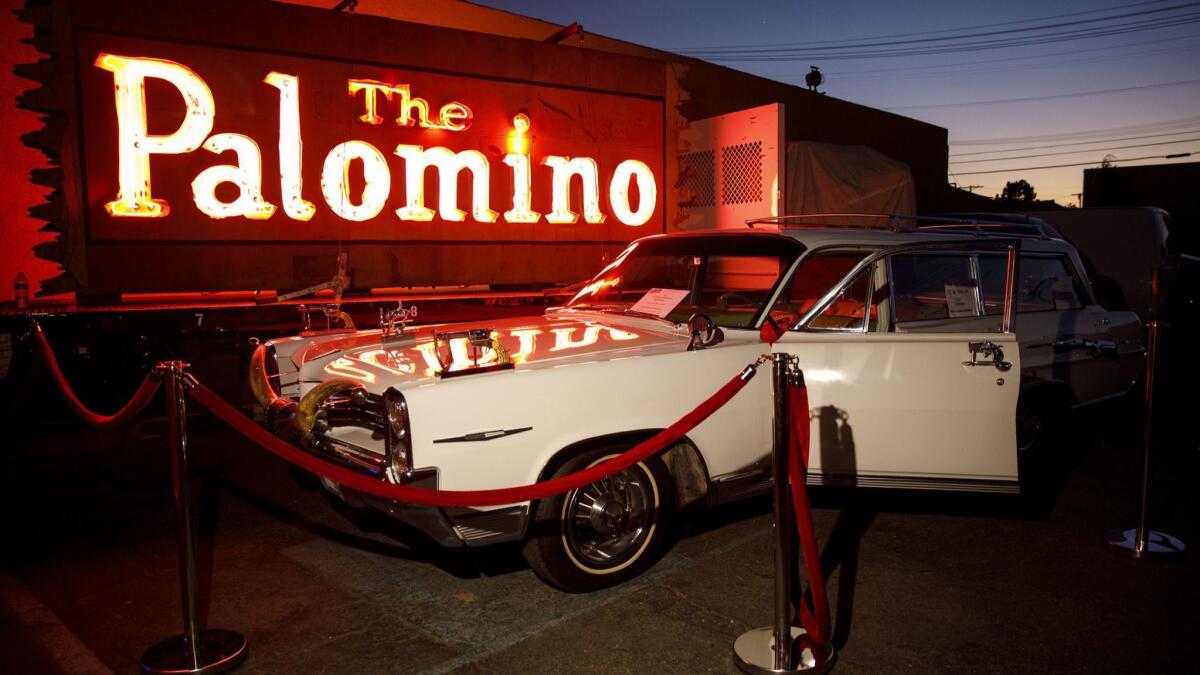
Those, however, were mere icing on the cake of a genuinely heartfelt gathering of dozens of musicians who either played “the Pal” back in the day or were well-versed in its storied history.
The four-hour-plus marathon was headlined by three artists — Jim Lauderdale, Rosie Flores and James Intveld — who frequented the club in the late ’70s and early ’80s, long after it had established itself as the California counterpart to Nashville’s Ryman Auditorium, a.k.a. the “Mother Church of Country Music,” hosting virtually every major name in country.
Vintage photos scrolled inside on a video screen, silent testimony to the Palomino’s golden days. That’s when country music lovers could count on walking through the front door facing Lankershim Boulevard any night of the week and witness acts including Patsy Cline, Ernest Tubb, George Jones, Willie Nelson, Johnny Cash, Waylon Jennings, Emmylou Harris, the Flying Burrito Brothers, Tom T. Hall and, of course, the performer that virtually every Palomino regular would cite as among their favorites: Jerry Lee Lewis.
As time went by, it also became home to a vibrant roots music scene that developed in parallel with the arrival of punk rock. That’s the population that formed the heart of Monday’s benefit: Along with the headliners came guest spots from Rank & File’s Chip Kinman and Textones leader Carla Olson, singer-songwriter Jack Tempchin and members of Lone Justice. Others appearing included the Balancing Act, Rick Nelson’s son Gunnar Nelson and singer-songwriter Jeffrey Steele. There was also a new generation of bright lights, including Jade Jackson, Sam Morrow, Brian Whelan, KP Hawthorn (Kirsten Proffit), Liz Brasher, Alice Wallace and Tracy Dawn Thompson.
Acting as emcee was L.A. country-roots scene stalwart Ronnie Mack, who for seven years held his weekly Barn Dance gatherings at the Palomino. “They did a good job re-creating the stage, with the red curtain behind it and all the posters on the walls,” Mack said shortly before the music got rolling.
The show was split in two: The first half featured a song or two apiece from a parade of performers, many of whom sweetly honored their Palomino predecessors.
Wallace paid homage to Linda Ronstadt with “Long Long Time,” Morrow served up a suitably muscular rendition of Jennings’ “Waymore Blues,” Stevens offered the Louvin Brothers’ “If I Could Only Win Your Love” in honor of Harris’ version, Thompson settled on Willie Nelson’s “Funny How Time Slips Away” and Hawthorn delivered Cline’s arrangement of “I Fall to Pieces.” Musical tribute performer Steve Waddington represented for Cash with a Pseudo-Man-in-Black rendition of “Ring of Fire.”
At one point, generations overlapped as Tempchin, best known for writing for and with members of the Eagles, sang his gentle country-rock standard “Peaceful Easy Feeling” with Jackson, and the rollicking “Already Gone” with Wallace.
Outside the club before the show, Tempchin likewise spoke of the two-year residency he had at the Palomino in the ’80s with his band, the Seclusions.
“I kept looking for a recording studio that would give me a deal, and I didn’t know it didn’t work that way,” he said, smiling broadly. “Then, one night, I got backstage and found the room filled with flowers from the Robb Brothers, who owned Cherokee Studio [originally based in Chatsworth before relocating to Hollywood]. They’d seen us at the Palomino and said they liked us and wanted to record us for free. I don’t know that that’s ever happened to anyone else, an offer like that from a studio.”
Because cowpunk was born about the same time, the volume and tempo ratcheted up when Kinman and Olson offered a number that he introduced as the final song he and his late brother, Tony, played on a bill with the Blasters. The song, described as an exploration of “the hills and hollers of Manhattan,” turned out to be the Velvet Underground’s “Sweet Jane.”
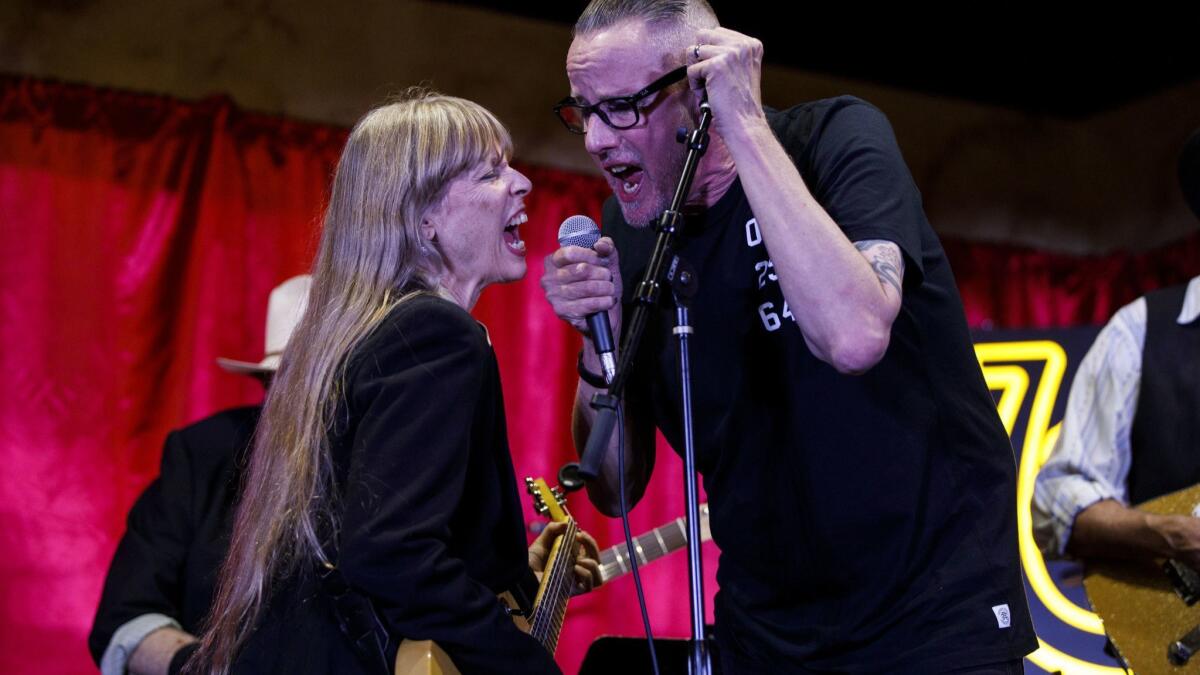
The connective thread for this part of the evening was the house band, the Palomino Riders, all of whom had done the same job a generation earlier: guitarists Jeffrey Paul Ross and Harry Orlove, keyboardist Skip Edwards, steel player Dave Pearlman, bassist Paul Marshall and drummer Dave Raven, lending expert support to the various singers.
Lone Justice alums Marvin Etzioni and Ryan Hedgecock, backed by Raven and Balancing Act guitarist Willie Aron, cranked up the punk half of cowpunk in a couple originals, “I See It” and “The Grapes of Wrath,” during a set replete with an electric menorah that Etzioni plugged in and set at the front of the reconstructed Palomino stage.
Intveld, who had played bass once upon a time in the house band during Mack’s Barn Dance gatherings, took over as master of ceremonies in the second half, serving up songs of his own, accompanied by the band he assembled for the occasion, the Honkytonk Palominos. He also offered stories from his many nights at the club as a performer and as a fan.
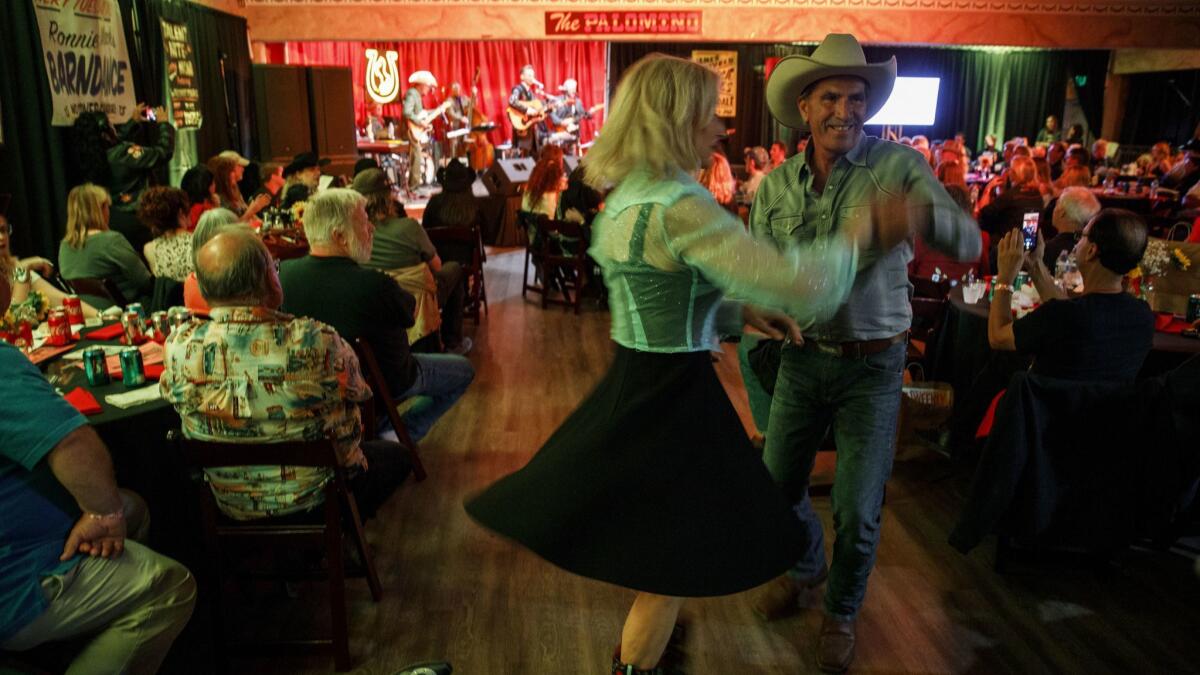
He welcomed a parade of guests, including neo-rockabilly/western swing bandleader Robert “Big Sandy” Williams, Steele and Gunnar Nelson, who saluted his dad with three songs from his years fronting the Stone Canyon Band and helping create the template for country rock in their version of Bob Dylan’s “She Belongs to Me,” “Something You Can’t Buy” and the elder Nelson’s final major pop hit, an ode to refusing to give in to the pull of nostalgia, “Garden Party.”
Lauderdale, the prolific Nashville-based singer and songwriter, spoke of the pull he felt from the California roots music scene that was anchored at the Pal three decades ago — including such breakout stars as Lucinda Williams and Dwight Yoakam — that brought him to L.A. in 1987. It’s where he wrote perhaps his best-known song, “The King of Broken Hearts,” inspired by stories of country-rock pioneer Gram Parsons’ love for the music of Jones, two more Palomino regulars.
He directed the song at Parsons’ daughter Polly, who was seated a few feet away at one of the circular tables where ticket holders dined and drank as the music unfolded.
To Mack, a clearly emotional Lauderdale said, “We can’t thank you enough for all you’ve done for us. This man is a saint in my book.”
Before her set, Flores told The Times of her fondness for the club, recalling that “I met Waylon here one night. I remember he smelled like leather, sweat and cigarettes, and I thought, ‘That’s a real cowboy!’”
Flores opened her set with a tribute about her deep connection to the club, “Palomino Days,” which name checks many of the peers she crossed paths with there.
The show concluded just after midnight with a fitting tribute to the two most revered architects of West Coast country music: Merle Haggard and Buck Owens, with Intveld, Flores and Lauderdale joining in on an all-hands on deck finale that also featured Big Sandy and Steele, as they spun out a medley of Haggard’s “Mama Tried” and Owens’ “Love’s Gonna Live Here.”
Lauderdale seemed to speak for all the evening’s participants in the midst of his set when he said, “Even though we don’t have the Palomino like we used to, we’re never going to forget this place.”
Follow @RandyLewis2 on Twitter.com
For Classic Rock coverage, join us on Facebook
More to Read
The biggest entertainment stories
Get our big stories about Hollywood, film, television, music, arts, culture and more right in your inbox as soon as they publish.
You may occasionally receive promotional content from the Los Angeles Times.
